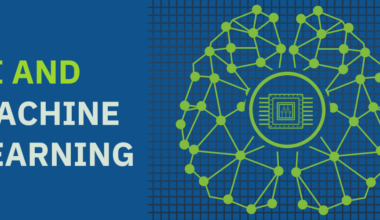STEM education combines Science, Technology, Engineering, and Math into a cohesive learning experience that is both engaging and practical. Instead of treating these subjects separately, STEM integrates them to show how they work together to solve real-world problems. This approach makes learning more interactive and relevant, helping students see the connections between different fields. By emphasizing hands-on projects and problem-solving, STEM education not only sparks curiosity but also prepares students for careers in a technology-driven world. It fosters creativity, drives innovation, and equips students with essential skills for the future.
This blog delves into the essence of STEM education, its importance, and the value it brings to students.
What is STEM Education?
STEM education combines Science, Technology, Engineering, and Math into a unified learning approach. Instead of teaching these subjects in isolation, STEM integrates them to show how they connect and apply to real-world problems. This method helps students see how different areas of knowledge work together to solve complex issues, making their learning experience more practical and engaging.
Key Components of STEM Education:
- Science: Focuses on exploring the natural world through observation, experimentation, and analysis. It includes subjects like biology (the study of living organisms), chemistry (the study of substances and their reactions), and physics (the study of matter and energy).
- Technology: Involves using tools and techniques to address problems and enhance efficiency. This area covers information technology (IT), software development, and digital literacy, all of which are crucial in our tech-driven world.
- Engineering: Applies scientific principles to design and create solutions for real-world challenges. This field includes various disciplines such as civil engineering (designing infrastructure), mechanical engineering (creating machines), and electrical engineering (working with electrical systems).
- Mathematics: Provides the foundation for analyzing and solving problems. It includes subjects like algebra (working with equations), geometry (understanding shapes and spaces), and statistics (analyzing data), all of which are essential for problem-solving in STEM fields.
Why STEM Education Matters
- Boosting Innovation and Economic Growth: STEM education is essential for driving technological advancements and economic development. By equipping students with skills in these areas, we help them contribute to industries that drive growth and create new job opportunities, enhancing overall economic competitiveness.
- Addressing Global Challenges: Many of the world’s biggest problems, such as climate change, health issues, and energy sustainability, require STEM solutions. STEM education empowers students to develop the critical thinking and problem-solving skills needed to tackle these challenges and contribute to a more sustainable future.
- Enhancing Critical Thinking and Problem-Solving Skills: STEM education encourages students to think critically and approach problems from various angles. This promotes analytical thinking, creativity, and perseverance, which are valuable in both professional and personal contexts. Through hands-on projects and real-world applications, students learn how to test and refine their ideas.
- Preparing for Future Careers: The job market is increasingly focused on STEM fields, which are among the fastest-growing and highest-paying professions. By providing a strong foundation in STEM subjects, education systems prepare students for diverse career paths and make them adaptable in a changing job market.
- Building Collaboration and Teamwork Skills: Many STEM projects involve working in teams to solve problems. This experience helps students develop essential interpersonal skills, such as communication, teamwork, and leadership. These skills are crucial for success in almost any career.
- Encouraging Lifelong Learning: STEM fields are constantly evolving with new discoveries and technologies. STEM education instills a mindset of lifelong learning, encouraging students to stay curious and continually update their skills. This adaptability is key in a world where technology and industry standards are always changing.
The Benefits of STEM Education for Students
- Improved Academic Performance: Students engaged in STEM education often perform better in other subjects because the problem-solving and analytical skills they develop help in areas like language arts and social studies.
- Increased Engagement and Motivation: STEM learning is often project-based and hands-on, making it more engaging and relevant. Seeing how their work impacts real-world issues can boost students’ motivation and interest in their studies.
- Broad Career Opportunities: A background in STEM opens up a wide range of career options. Whether students are interested in engineering, healthcare, technology, or research, STEM education provides the foundation needed to explore various professional paths.
- Development of Soft Skills: Beyond technical knowledge, STEM education helps students build important soft skills, such as resilience, creativity, and the ability to work under pressure. These skills are valuable in any job and contribute to overall personal growth.
- Increased Confidence: Successfully tackling complex problems in STEM can boost students’ confidence in their abilities. This increased confidence encourages them to take on challenging goals and pursue leadership roles in their future careers.
Conclusion
STEM education is not just about preparing students for specific careers; it’s about equipping them with the skills and mindset needed to thrive in a rapidly changing world. By focusing on critical thinking, problem-solving, and adaptability, STEM education lays a strong foundation for both professional and personal success.
Choosing the best UG college in Ghaziabad that offers robust STEM programs can provide students with the opportunities to develop these essential skills. Investing in such education drives innovation and addresses global challenges, preparing students to become leaders and problem-solvers in a technology-driven world. STEM education helps students excel in their careers and make meaningful contributions to society and the world.






